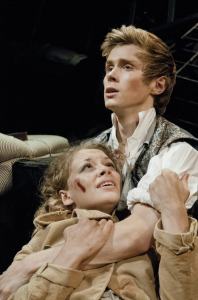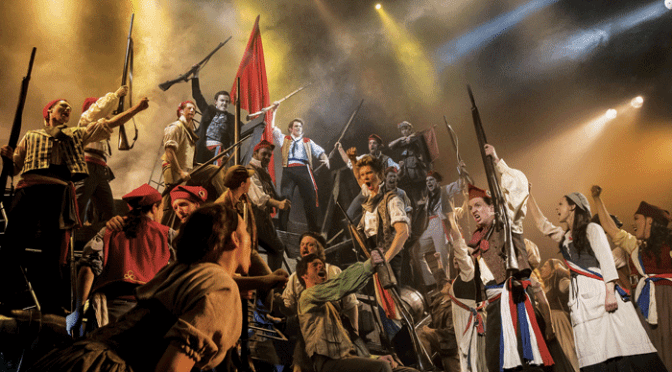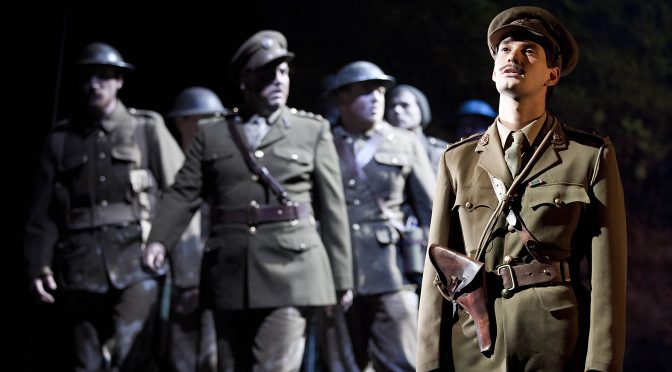For a lot of Londoners, Les Mis is as much a landmark as a musical. Something that’s just there: a show seen long ago and now for tourists. The statistics about its success are on the dot matrix outside the Queen’s Theatre – and they are impressive. But the real phenomenon is how, despite knowing the story and songs, having seen the film and bought the t-shirt, Les Mis moves as much as ever.
Speculation about the show’s success has existed since it surprised critics and started selling tickets. Never forget how crazy adapting Victor Hugo’s epic of post-revolutionary French history must have seemed. First up, the tale itself: a good old-fashioned yarn that’s sentimental and exciting. As for the telling – by Alain Boublil and Jean-Marc Natel – it doesn’t stop, with an impressive pace that belies the show’s three-hour duration.
Claude-Michel Schönberg’s music is big and best described as filmic. Though the many hits are worth waiting for, the score has a satisfying coherence. With leitmotifs that emphasise themes as well as characters, it builds emotion so effectively it borders on exploitative; pretty much the whole of the second act guarantees goose bumps. OK, I confess, I was teary before the interval.

The music demands massive voices and the current cast are superb. From the start the strength of the male chorus is hugely impressive. Both leads, Valjean and Javert, with their personal stories embodying a divide between law and justice, are given powerhouse performances from Peter Lockyer and David Thaxton. Looking to the younger characters, whose story culminates on the barricades of the June Rebellion in Paris, both Rob Houchen and Carrie Hope Fletcher are tremendous as Marius and Eponine. More tears I am afraid.
John Napier’s design is surprisingly simple; mostly a matter of smoke with David Hersey’s excellent lighting (and the revolving stage so brilliantly parodied in Forbidden Broadway). Directors Trevor Nunn and John Caird handle the crowd of a cast with exemplary skill, directing audience emotions as much as anything; the best example being ‘Empty Chairs At Empty Tables’ – Marius’ lament – which sees his martyred friends breathtakingly emerging into view.
Like any work of theatre, Les Mis can’t be frozen – a live crew makes it work. The cynical might see its success down to reputation – it’s a safe bet and visitors tick the ‘done that’ box. But believe me, nobody working the performance I saw was resting on any laurels. But the real key to the success is both simpler and more profound: Les Misérables moves you. It’s still one of the best theatre experiences around.
Main photos by Johan Persson


